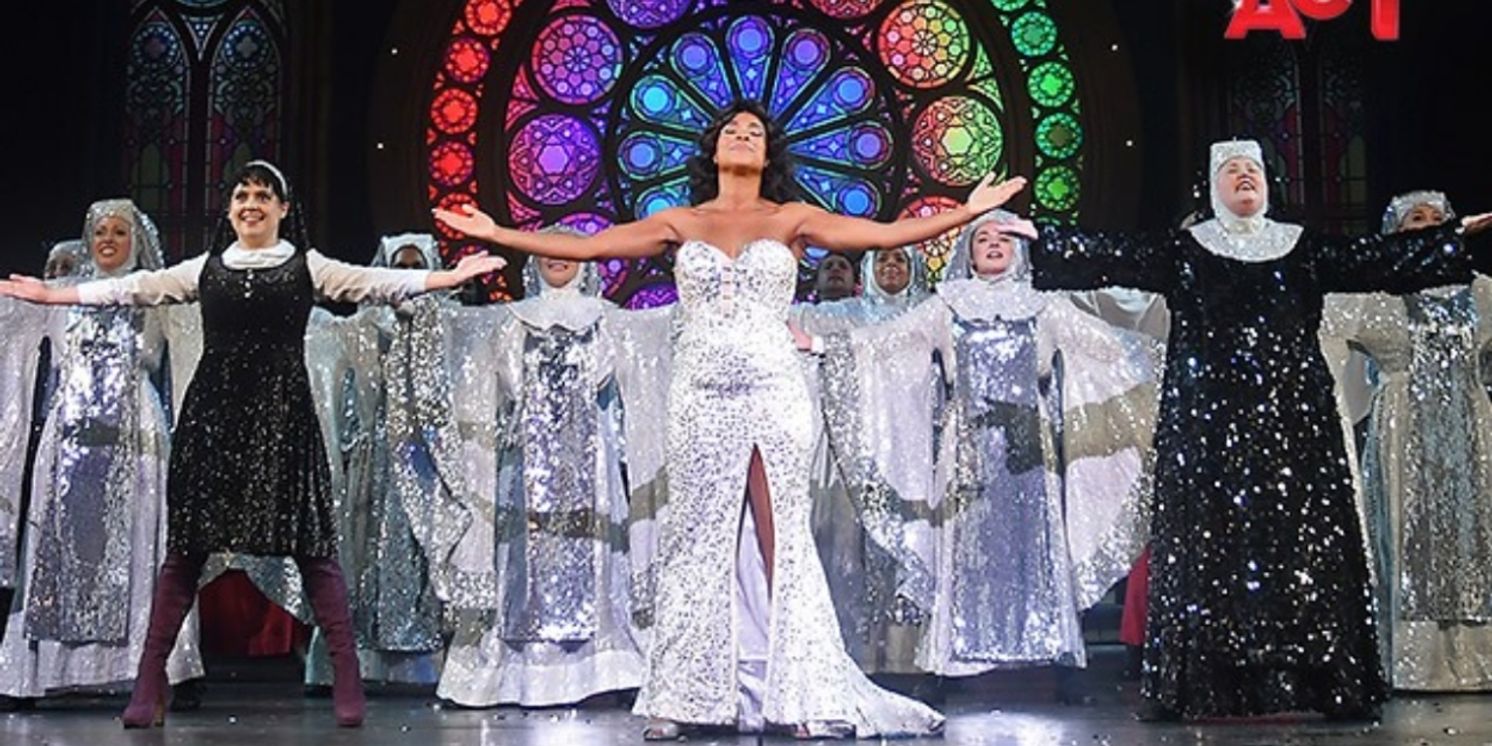Review: Pittsburgh CLO's SISTER ACT Brings Disco Delight at Benedum Center
Pittsburgh CLO closes its season with the divine disco hit

If you asked me "what's the perfect musical," I'd have to scratch my head for a while, but if you asked me "what's the most well-constructed musical," I'd say Beauty and the Beast without even pausing to think. That show (though I'm talking about the classic version, not the "abridged" version rolled out earlier this year that streamlines the piece too much for my tastes) was fool-proof: the material was so strong, the characters so individuated and vibrant, the music so catchy, that even the worst production of it would still be "okay" at worst. Alan Menken's Sister Act (with lyrics by Glenn Slater and book by Cheri and Bill Steinkellner with Douglas Carter Beane) isn't quite as foolproof as the Disney classic, but it's so well structured and flows so well, there's certainly some Beastly DNA in it. Pittsburgh CLO's season-ending production has glitz, glamour, laughs and heart, all the things a crowd-pleasing musical comedy needs.
Liberally adapted from the Whoopi Goldberg classic, the musical resets itself in the 1970s, as struggling nightclub singer Deloris (Tamyra Gray) witnesses her lover Curtis (Benjamin H. Moore) whack another mobster. Transferred into witness protection, the police, including shy beat cop Eddie (E. Clayton Cornelious), place the would-be disco diva in the last place Curtis would ever look for her: a bankrupt Catholic church and convent. Deloris butts heads with the upright Mother Superior (Anne Tolpegin) until put in charge of the convent choir. Will Deloris's musical talents save the church, or get them all killed?
While American Idol alum Tamyra Gray is better known as a singer than an actor, she absolutely nails the mix of ego and vulnerability that make Deloris tick, and her moments of physical comedy in particular (such as a Scooby-Doo "this way, that way" chase sequence in each act) are real standouts. Anne Tolpegin's Mother Superior is grounded and relatable, stern but less arch than Dame Maggie Smith's stiff-upper-lip take on the role. Tolpegin doesn't get many chances to sing until her big crisis-of-conscience number in Act 2, but when she does, the role suddenly becomes twice as human. Nonetheless, Sister Act is an ensemble piece, and the most memorable moments are the two disparate ensembles. On the one hand, we have Deloris and the nuns. With Susana Cordon and Kara Mikula leading the way, the nuns are a fantastic assembly of singing character actresses with as much comedy as soul. Nearly every nun has a featured solo or a punchline that gets applause. On the other end of the extreme, there's Benjamin H. Moore as the smooth gangster Curtis; with a voice like Lou Rawls, he sings with the same purring pleasure about murder and sex, like they're interchangeable. Even better, he's backed by a bumbling trio of hit men ((Tré Frazier, Davis Wayne and Robert Ariza), who sing falsetto and dance with a mixture of seduction and buffoonery. Any time "those three guys" appear on stage, the audience know they're in for a treat.
I think it's worth mentioning that this is one of the most Pittsburgh-oriented offerings out of Pittsburgh CLO's mainstage season in ages. E. Clayton Cornelious is a Pittsburgher, as is Jeffrey Howell, who nearly steals the show as a stuffy Monsiegnor who discover's he's got swagger when the church choir needs a funky emcee. Many of the supporting and featured roles are Pittsburghers as well, such as Eric Phelps, Lara Hayhurst, Christine Laitta and the nearly-ubiquitous Saige Smith. It's always great to see Broadway and film/tv stars come to town, but it's just as inspiring to see Pittsburgh's local talent get their chance in "the big show" as well. As directed by Ameenah Kaplan (currently directing the immersive-theatre Star Wars: Galactic Starcruiser project) and choreographed by Robbie Roby, the show looks smooth, slick and splashy, especially when you factor in Adam Koch and Paul Miller's scenic and lighting designs. This is one of the most expensive-looking, elaborate show designs for a CLO production in ages, and every costume change or new stained glass window gets a murmur of delight from the audience.
The show itself is deeply satisfying on a textual level. Sure, the songs aren't all as immediately gripping as Menken's earlier classics, but the old guy hasn't lost a step in his forty-year career as a Broadway hit machine: "When I Find My Baby" and "Raise Your Voice" will echo in your head for days, even weeks, after the show closes. And here's the highest praise I can give it: I didn't think ONCE of "My Guy" or "I Will Follow Him" throughout the entire show. Now that's entertainment.
Reader Reviews
Videos

